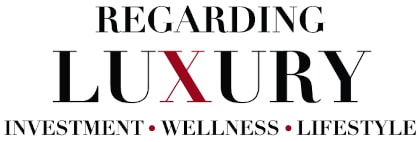Making a living by investing in property and letting it to tenants might seem like an appealing prospect. If you’re interested in entering the world of rental property, then you should be aware that there are multiple points of entry.
Related: 5 upgrades for your rental property investment
However, whichever option you choose, you can expect it to take time to build your cash flow to the point that it can serve as your sole source of income.
So, when does rental income count as a business? If your primary source of income is rental, then it’s your business. The same might be true if you’re buying properties with the intent of letting them out. The question of whether you’re a business or not matters, because it can lead to tax advantages if you set the business up in the right way.
Strategies for would-be landlords
We mentioned that there are several approaches for would-be landlords to take. You might elect to buy properties when they’re in good condition, and then rent them out.
This is perhaps the most straightforward way of doing things, since you won’t need to worry too much about maintenance and renovation, beyond your basic legal duty to keep the property in habitable condition. On the other hand, this will mean that you’ll be limiting the potential number of properties available to you. You might miss out on bargains.
Rental property: Getting a company to run your day-to-day
If you’re looking actively for ‘fixer uppers’ and then renovating them with a view to renting or selling for profit, then you can potentially make a substantial amount from just one property. The risks associated tend to be higher, here, and you’ll need experience and the support of a network of contacts if you’re going to enjoy reliable results.
For those new to the business, seeking the assistance of a reputable letting agency can be helpful. These organisations will oversee the day-to-day running of your properties, allowing you to focus on your key areas of interest – like seeking out new investments. This way, your income from your property will become more passive. You’ll earn it without having to do anything.
How should I set up?
As a landlord, you generally have a choice between two kinds of business. You can set up as a sole proprietor, or as a limited company. In the former case, you’ll be assuming a lot more responsibility, as well as debt if things go wrong. Make the wrong call, and you could face ruin. Make the right ones, and you’ll get all of the associated reward. If you’re thinking of going in with a partner, then the liability you assume is still unlimited – though it will be split with someone else.
In a limited company, this doesn’t happen. Your liability is limited, which means that you’ll have a way out if the business collapses.

I am a 50-something Torontonian who loves everything about my city. It’s been my home, my playground, for my entire life. I went to school here. I met my wife here. I own real estate here. I love writing about the transformation of my city on the world stage, which hasn’t been anything short of dramatic. That continues on, as I write this. I write on the real estate scene. I write on travel and fashion. I like following the world of luxury watches.
But I love writing about cars – check that, luxury cars, a level of superior, engineering sophistication, high performance and style, that transports you not just from one destination to another but also out of whatever you are going through on a particular day, whatever mood you are in, all to another head space. It’s complete and total exhilaration, head to toe.
Check out my stories, and email me direct at mkeast@regardingluxury.com








